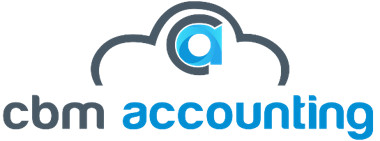[lwptoc]
Running a restaurant in the UK comes with various financial and tax obligations. Effective tax planning can help restaurant owners minimize liabilities, improve cash flow, and ensure compliance with tax regulations. Here’s a guide to key tax considerations and strategies for restaurant businesses in the UK.
1. Understanding VAT for Restaurants
Standard and Reduced VAT Rates
- Standard VAT Rate (20%): Applies to most restaurant food and drink sales, including alcohol and soft drinks.
- Reduced VAT Rate (5%): May apply to some takeaway food and non-alcoholic beverages, depending on how they are sold.
- Zero-rated: Cold takeaway food (such as sandwiches) can be VAT-exempt, but careful classification is necessary.
VAT Registration and Compliance
- Restaurants must register for VAT if their taxable turnover exceeds £90,000 per year.
- VAT returns must be filed quarterly under Making Tax Digital (MTD) requirements.
- Businesses can reclaim VAT on eligible business expenses such as ingredients, kitchen equipment, and utilities.
2. Business Structure and Corporation Tax
Sole Trader vs. Limited Company
- Sole traders pay Income Tax and National Insurance on profits.
- Limited companies pay Corporation Tax (currently 19-25%) but may benefit from tax efficiencies such as dividend payments.
Corporation Tax Strategies
- Claim allowable business expenses such as rent, marketing, and staff wages to reduce taxable profits.
- Use capital allowances to deduct the cost of equipment, such as ovens and refrigerators.
- Consider R&D tax credits if investing in new food technology or sustainability initiatives.
3. Employment Taxes and Payroll Responsibilities
PAYE and National Insurance Contributions (NICs)
- Employers must operate PAYE (Pay As You Earn) for employee wages.
- Employers pay Class 1 NICs on staff salaries exceeding the threshold.
- The Employment Allowance may allow eligible businesses to reduce NICs by up to £5,000 per year.
Tips and Service Charges
- Tips given voluntarily by customers are not subject to VAT but may be taxable as part of employee wages.
- Tronc schemes can help manage tips efficiently while reducing National Insurance liabilities.
4. Capital Allowances and Expense Deductions
- Restaurants can claim capital allowances on eligible equipment and business investments, such as:
- Kitchen appliances and furniture.
- Security systems and IT equipment.
- Heating, lighting, and air conditioning systems.
- Annual Investment Allowance (AIA) allows businesses to deduct up to £1 million in qualifying expenses.
5. Construction Industry Scheme
If a restaurant business uses subcontractors for any construction work, they may have to comply with the CIS scheme.
6. Tax Reliefs and Incentives for Restaurants
Business Rates Relief
- Small businesses may qualify for Small Business Rate Relief (SBRR) if the property’s rate able value is below £15,000.
- Temporary reliefs may be available for hospitality businesses under government schemes.
Eat Out to Help Out and Other Government Schemes
- Past schemes such as Eat Out to Help Out have provided tax relief opportunities.
- Restaurants should monitor government incentives to support business growth.
7. Managing Cash Flow and Record-Keeping
- Accurate bookkeeping helps ensure tax compliance and reduces errors in filings.
- Using cloud accounting software can streamline tax reporting and VAT submissions.
- Working with a tax advisor or accountant can help optimize tax efficiency and ensure compliance.
Tax Planning Strategies:
- Accurate Record Keeping:
- Maintain detailed records of all income, expenses, and VAT transactions.
- Utilize accounting software to streamline record-keeping.
- Expense Management:
- Identify and claim all allowable business expenses.
- Keep meticulous records of receipts and invoices.
- VAT Optimization:
- Ensure accurate application of VAT rates.
- Reclaim input VAT where applicable.
- Understand the VAT implications of different sales types (dine-in, takeaway, delivery).
- Capital Allowance Claims:
- Maximize capital allowance claims on eligible equipment and fixtures.
- Business Structure Optimization:
- Consider the tax implications of your business structure (sole trader, partnership, limited company).
- Professional Advice:
- Consult with an accountant or tax advisor specializing in the restaurant industry.
- Stay updated on changes in tax laws and regulations.
Key Considerations:
- Tips and Gratuities:
- Understand the tax implications of tips and gratuities for both employees and employers.
- Consider using a tronc system for fair and efficient tip distribution.
- Inventory Management:
- Implement an inventory management system to track food and beverage costs and minimize waste.
- Payroll Management:
- Use payroll software to streamline payroll processing and ensure compliance with employment regulations.
Final Thoughts
Effective tax planning is essential for restaurant owners to maximize profits and avoid financial penalties. Understanding VAT rules, payroll obligations, and available tax reliefs can help restaurants operate smoothly while maintaining compliance. Consulting a tax professional can provide tailored advice to help restaurant businesses thrive.
Let CBM accounting be your trusted partner!

